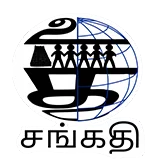
Nalin de Silva highlights major constitutional flaw
By Shamindra Ferdinando
Sri Lanka’s former Ambassador to Myanmar, Prof. Nalin de Silva, has said that whatever amendments introduced to a particular Bill at the committee stage should be definitely subjected to the approval by the Supreme Court.
The one-time Mathematics Don has stressed that the Speaker shouldn’t endorse the amended Bill until the Parliament obtained the Supreme Court’s consent.
Prof. De Silva said so commenting on a simmering controversy over Justice Minister Dr. Wijeyadasa Rajapakse, PC, manipulating the committee stage process to introduce new amendments which may not be in line with the Supreme Court ruling on the original Bill on the 22nd Amendment to the Constitution.
Prof. de Silva dealt with the issue at hand as sections of the ruling SLPP, including dissidents, warned against any moves to dilute executive powers to enable the full operationalisation of the 13th Amendment to the Constitution.
The outspoken retired academic has urged the Parliament to introduce an amendment to prevent the Speaker from endorsing an amended Bill, till the Supreme Court approves it.
Prof de Silva last served as Sri Lanka’s top envoy in Myanmar, from 2020 to 2021.
The activist described the absence of provision for the Supreme Court to examine a Bill, following the committee stage, as a major flaw in the Constitution. This loophole should be closed, Prof de Silva said, recalling how successive governments had exploited the committee stage of controversial Bills to pursue their agendas. Prof de Silva cited the passage of the 19th Amendment to the Constitution as a case in point.
Prof de Silva stressed that the Justice Minister’s approval of amendments were certainly not sufficient. Therefore, Supreme Court approval should be a prerequisite for the Speaker’s endorsement, he said.
Having pointed out that the 22nd Amendment had been presented to the public, through Gazette notification, Prof de Silva emphasized that the executive, the legislature and the judiciary were involved in the overall process.
Prof de Silva said that all amendments proposed to the 22 A that would be taken up for vote tomorrow (07) should be defeated. In fact, future attempts to introduce amendments at committee stage of a particular Bill, too, should be thwarted as the Speaker and the Justice Minister whichever party/alliance in power didn’t have the competence to examine the constitutionality of the proposals, Prof de Silva said.
The former diplomat said that the move to dilute executive powers should be examined against the backdrop of President Ranil Wickremesinghe’s failure to secure the required international financial assistance. Declaring that the incumbent government couldn’t obtain at least loans from Western powers let alone grants, Prof de Silva questioned the status of Sri Lanka’s much-touted Staff-Level Agreement with the International Monetary Fund now being contradicted by the government.
Prof de Silva was commenting on Premier Dinesh Gunawardena’s declaration in Parliament on Tuesday (04) that there was only a draft agreement and they were yet to finalize the Staff-Level Agreement with the IMF.
Prof de Silva said that before the finalization of the agreement, the draft agreement should be submitted to the Parliament.
The retired academic said that the government owed an explanation regarding the efforts to introduce constitutional amendments at a time political parties, represented in Parliament, should be concentrating on a tangible economic recovery plan. Prof de Silva asked whether they genuinely expected the introduction of 22 A to the Constitution would really enhance political stability.
Prof de Silva expressed serious concerns about how the powers that be could propose certain amendments at the committee stage of the 22 A with a view to appeasing the Tamil National Alliance (TNA) as well as the Sri Lanka Muslim Congress (SLMC), a constituent party of the main Opposition Samagi Jana Balavegaya (SJB). The retired University Don pointed out the possibility in the government proposing consultations between the appointing authority (the President) and the Chief Ministers in respect of the appointment of Governors of the Provinces. In terms of the Constitution now, the appointment of Governors is the prerogative of the President.
Prof de Silva said that the President couldn’t dilute executive powers enshrined in the Constitution.

